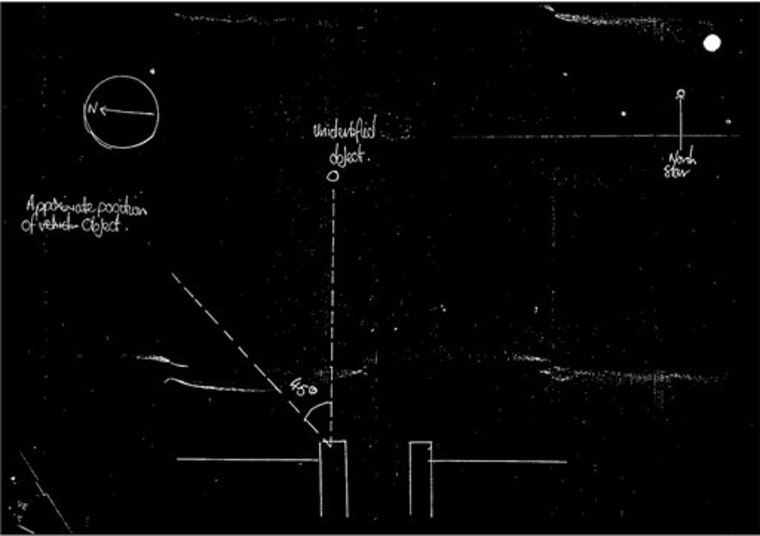Seen a UFO? Don't bother calling the Brits, they've stopped listening.
The British military has quietly shut down its UFO hotline as a cost-cutting measure after more than 50 years in operation. No longer will Britons who think they've seen Martian craft in the sky be able to enlist the services of Her Majesty's armed forces by reporting suspicious aerial activity to a toll-free phone number and an e-mail address.
The Ministry of Defense said the elimination of the UFO office would save about 44,000 pounds ($73,000) a year that would be better spent helping the troops in Afghanistan, where Britain has about 9,500 soldiers.
The quiet closure of the phone hotline and deactivation of the e-mail account earlier this week has angered the many Britons who believe UFO research is vital.
"I think it's a stupid thing to do because this could create a threat to national security," said Roy Lake, founder of the London UFO Studies group. "We take this quite seriously. We know that sometimes things can be explained as natural phenomena but there could be that one thing that's not. I think the government knows damn well what's going on up there and they're covering it up."
But military officials say the UFO office has outlived its usefulness.
"None of the thousands of UFO sightings reported over the years have ever provided substantiated proof of the existence of extraterrestrials," a Defense Ministry spokesman said. "There is no defense value in investigating UFO reports."
The spokesman said closing down the UFO inquiry unit would not add to the security threats Britain faces. Speaking on condition of anonymity in line with government policy, he said no one has lost their job because of the closure of the UFO portfolio, which over the years had detailed more than 12,000 sightings, including many with fanciful illustrations about purported encounters with aliens.
The military is taking no position on the existence or nonexistence of UFOs but has concluded that in 50 years none of the many reported UFO sightings turned out to be a national security threat.
Some view the decision as a sacrifice of mystery and romance in the name of cold financial logic.
Nick Pope, who helped the British military with its UFO investigations for many years, said the decision is wrongheaded.
"It's a great shame," he said. "This is the end of over 50 years of research and investigation into one of the biggest mysteries of our time."
Pope said the decision will also hurt British national security. He said that if commercial airline pilots and other experts no longer report suspicious activity it will leave the country more vulnerable to terrorist activity and to espionage.
"That's one thing we learned in the 9/11 attacks, the threat of incoming aircraft with transponders turned off," he said.
Over the years, the British military's investigations generated thousands of pages of secret documents, many of which were recently released by the National Archives after they were declassified.
Some UFO sightings seemed credible, like a 1984 report by a number of experienced air traffic controllers who said they saw an unidentified aircraft land at a small airport, then take off at tremendous speed, while others seemed to be made after a few too many pints at a local pub, like a report of contact with aliens made in 1995.
A few people claimed to have been abducted and offered sketches of the aliens involved.
The UFO document release, which generated attention throughout the world, made clear that the British military did devote considerable resources to the question of extraterrestrial life.
The British public seems sharply divided over whether this was a good use of money and time.
Andrew MacDonald, a Manchester planning and development officer, said it makes sense to cut and run after a half century of investigation proved fruitless.
"I don't believe in them," he said of visitors from outer space. "If the hot line has been in place for 50 years and nothing has been found, and we still don't know if anything dangerous exists, then it's about time we stopped looking."
But London event organizer Rachel Keane, 25, said the hotline was important.
"Who's to say there is nothing out there?" she said. "If there is, it's a bit scary that there is no one to call to inform them of what you've seen. I think someone is out there and we've got to be given a chance to report something strange if we see it."
More on |
